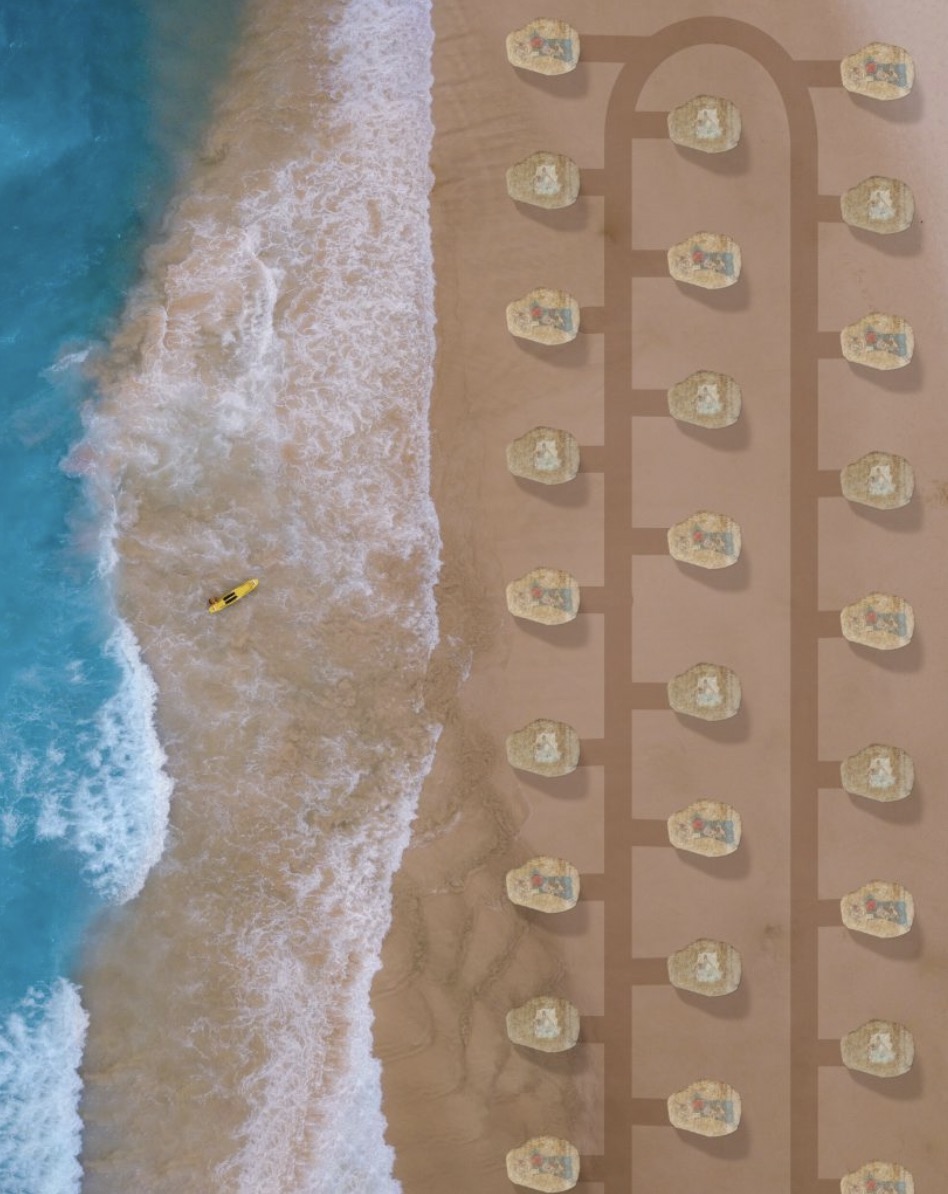In the Grafikmagazin, we have a soft spot for small, fine projects that are implemented with attention to detail. But, of course, we are also often fascinated by gigantic ideas that are backed by manpower, verve and an insane output. A good example of this is Where We Stand, which brought together 15 leading creative agencies and designers to make a statement against isolation in major cities around the world.
As we wrote in our portrait of the project in our current issue, the respective interventions were mostly hypothetical, but demonstrated collective creativity in how public spaces can benefit from good design to meet the demands of our new normal, in which the respective local politics created sometimes absurd navigation systems and rules through social distancing measures.
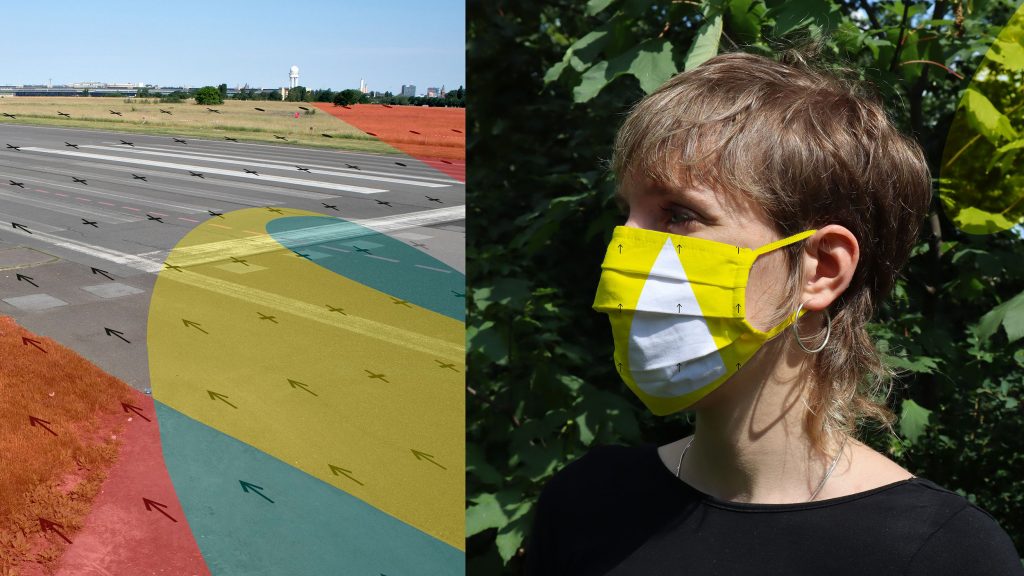
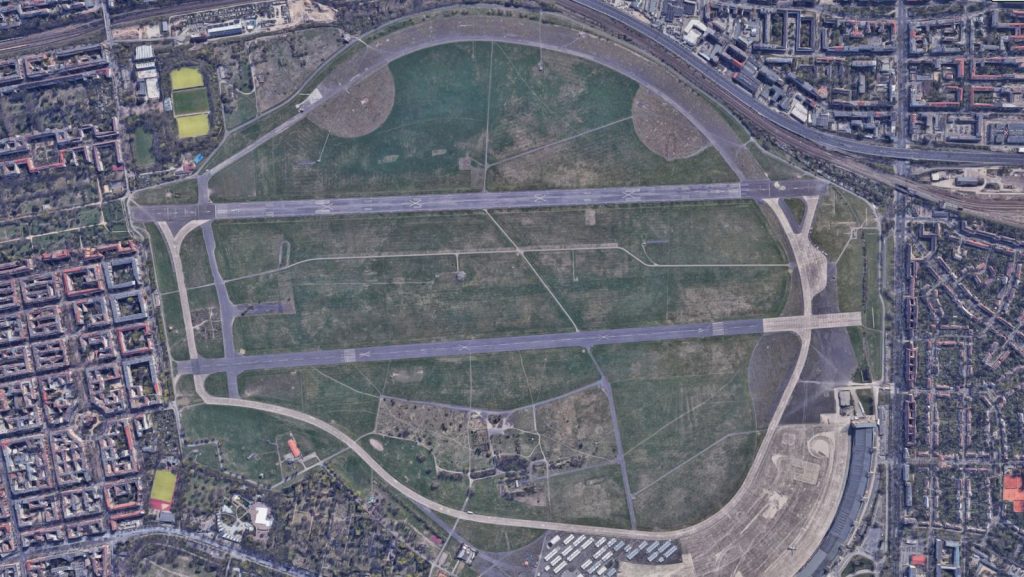
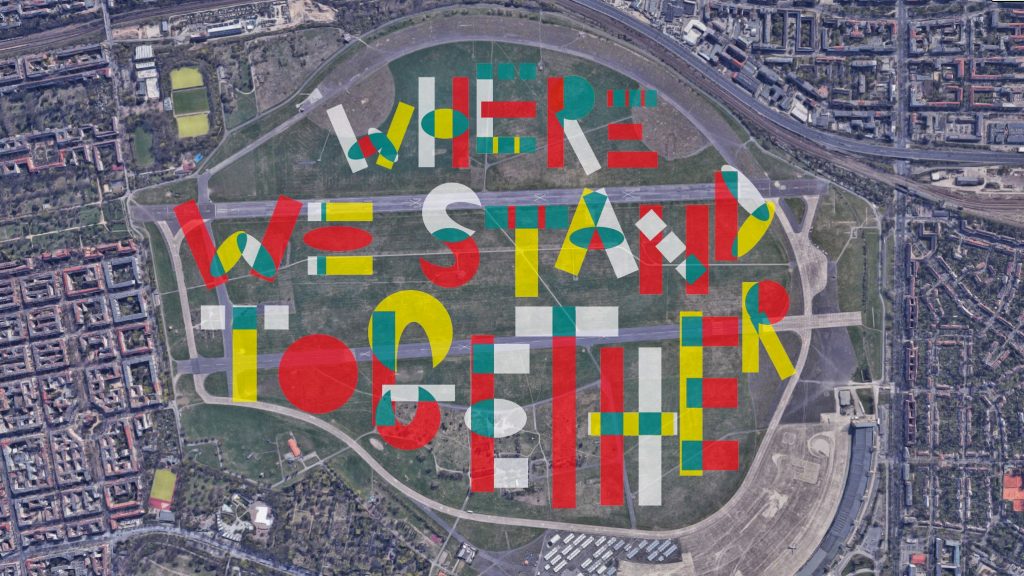
It is now clear to everyone that this scenario will be with us for a while yet. This makes the design approaches of Where We Stand all the more topical. This is because they bring an incredible gain and communicative quality to urban spaces - from Saigon to Singapore and Sidney to San Francisco, the concepts invite discursive, albeit distanced, interaction. "We believe that thoughtful, intelligent design can and will help to revitalize the cities we love," says initiator David Michon, whom we had the pleasure of asking a few questions for this issue. He works as a concept designer, copywriter and producer for well-known clients and collaborated for Where We Stand with Ask Us For Ideas, a network matchmaking platform that connects inspiring creative agencies in the industry.
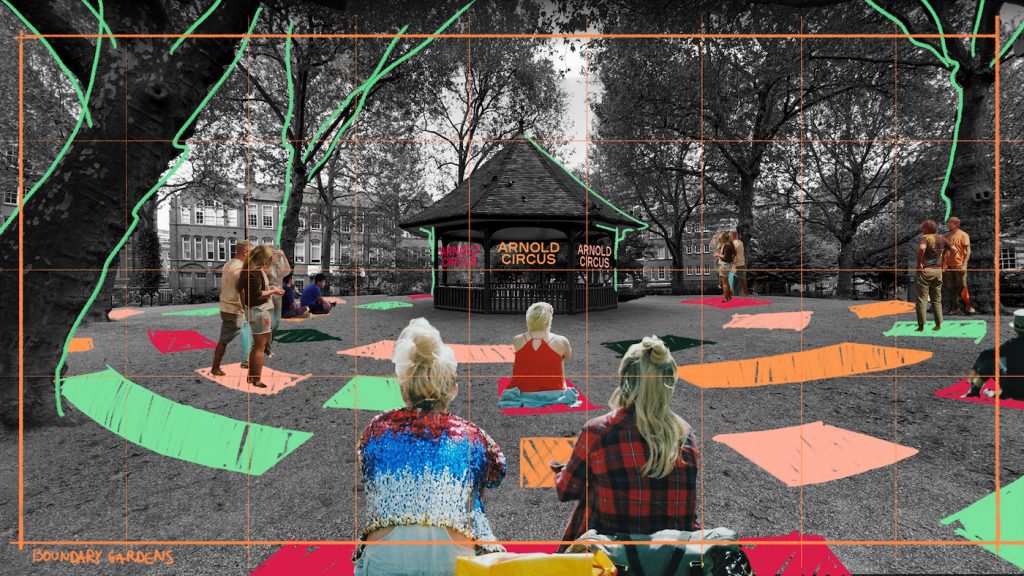
David, what does public space mean to you personally?
It's no surprise that public space is central to a city's identity - a Central Park, Trafalgar Square or Ipanema beach. They serve as a stage for relaxation, for partying, for protest. For me, as a staunch city lover, the best places are those where you can observe, better understand and absorb the particular essence of a city. But in the early months of the pandemic, I also developed a deep appreciation for my neighborhood park - Clissold Park in North London. It offered me a respite from house arrest and was a place where I could be with other people, albeit at a great distance.
In your opinion, has the pandemic affected urban areas differently than rural or less populated places?
Absolutely. The sacrifices of city dwellers often have to do with space: smaller (and lower quality) houses, no gardens. In return, we get access to an incredible collection of amenities: Restaurants, galleries, clubs. During the pandemic, all these amenities have been taken away from us - apart from public space. And even that has been restricted. I think the change in lifestyle has been drastic in the countryside too, but not quite as drastic as in the cities.
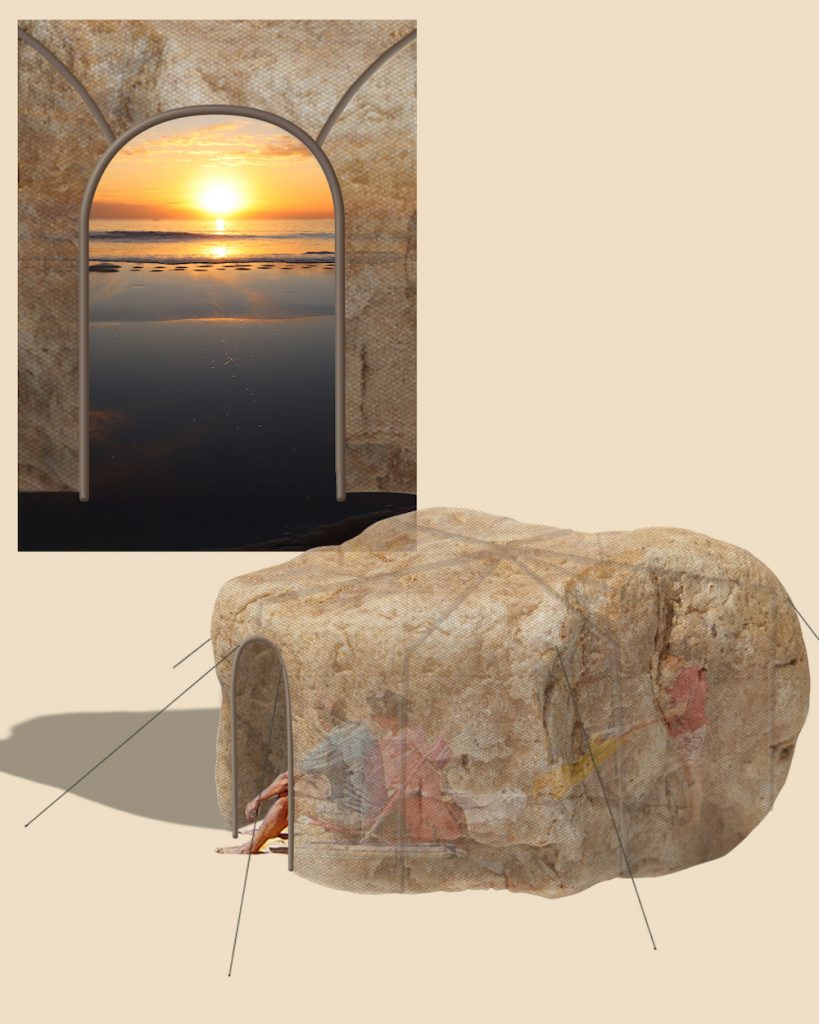
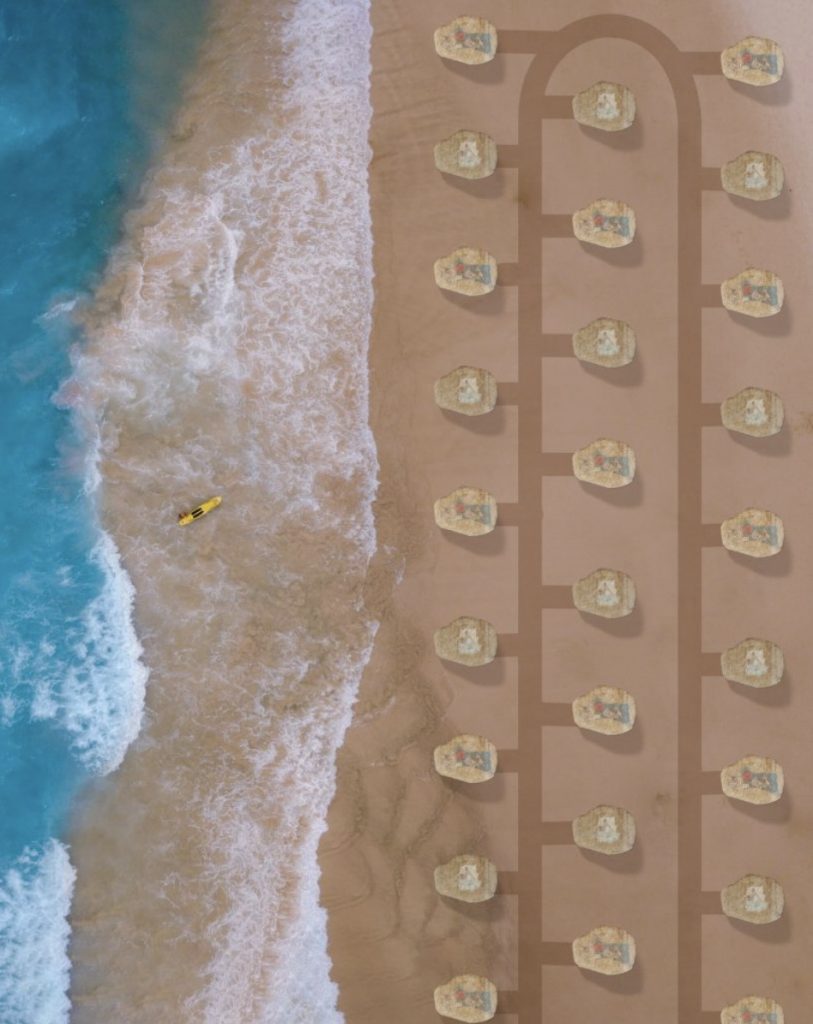
The participating agencies and designers have an influence on their respective home cities with their creative output. Does the project still exist in these cities? Have they evolved in any way?
The projects were all hypothetical. Their intention was to get people thinking about how public spaces could respond to the pandemic in a way that reflects their value and is respected. Some agencies were approached about whether they were actually implementing the ideas in one way or another. Others were approached quite a bit based on their interpretation of the selected spaces. And I think that's great - because it proves that people care. Of course they do!
What do you personally take away from the project? Would you have liked to continue it?
The project was initiated by the observation that, in order to ensure people's safety, cities were using symbols of "danger" to control behavior - for example, barrier tape. Lots of barrier tape. It was sad to see the fenced-off open spaces in cities. I had the feeling that there must be a better and more satisfying way to motivate people to keep their distance. And so I turned to creative agencies to find out what that might look like.
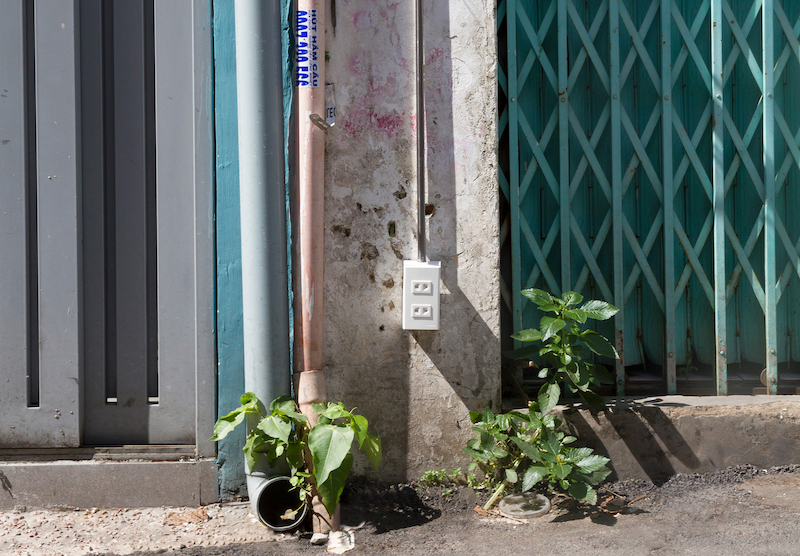
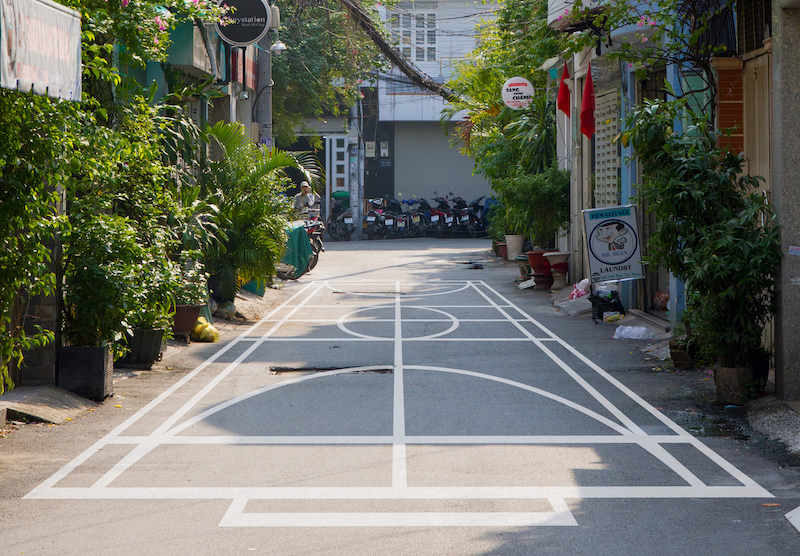
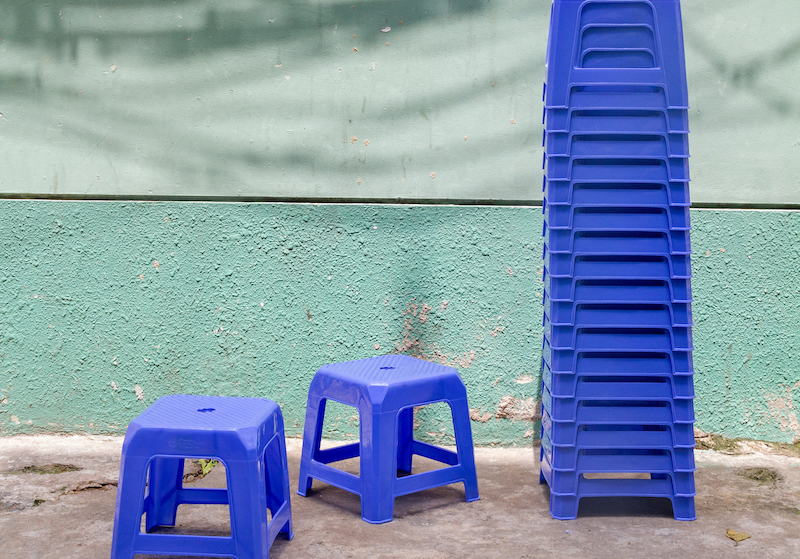
As a creative person, how are you dealing with the fact that the pandemic isn't over yet? What motivates you today?
I am very influenced by my environment and extroverted. Working from home was very hard for me - and still is. I find it uninspiring and unmotivating. To counteract this, I've just moved from London to Los Angeles because I need space and open skies, but still within a city. That's a pretty extreme coping strategy.
Nevertheless, many people have used the trauma of this pandemic to rethink everything and start a new chapter for themselves: looking for a new city or turning away from cities altogether, a new baby, a new job. Perhaps we are all searching for a sense of agency in the context of these completely overwhelming circumstances.
We would like to take this opportunity to invite you to click on and scroll through the Where We Stand website.
About the portfolio of the initiator David Michon
To the homepage of the co-responsible agency Ask Us For Ideas

